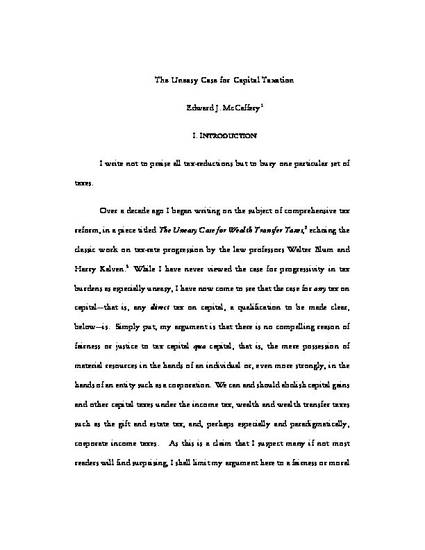
Unpublished Paper
The Uneasy Case for Capital Taxation
University of Southern California Law and Economics Working Paper Series
Abstract
The traditional view of tax holds that consumption taxes fail to tax the yield to capital, whereas income taxes do, leading to John Stuart Mill's criticism of the income tax as a "double tax" on wealth that is saved. A better analytic understanding illustrates that there are two types of consumption taxes. A prepaid consumption or (equivalently) wage tax indeed ignores the yield to capital. But a consistent progressive postpaid consumption tax gets at such yield, at the individual level, when but only when the returns to capital are used to elevate lifestyles in material terms. Such a tax allows "ordinary" savings that move around labor earnings, in constant dollar terms, to different periods of an individual's life, such as times of retirement or heightened medical or educational needs. Because a progressive postpaid consumption tax falls on the yield to capital at the right time - when its use at the individual level becomes manifest - all other taxes on capital, such as capital gains, gift and estate, and corporate income taxes, can and should be repealed, in the name of fairness.
Disciplines
Date of this Version
1-17-2006
Citation Information
Edward J McCaffery. "The Uneasy Case for Capital Taxation" (2006) Available at: http://works.bepress.com/edward_mccaffery/9/
